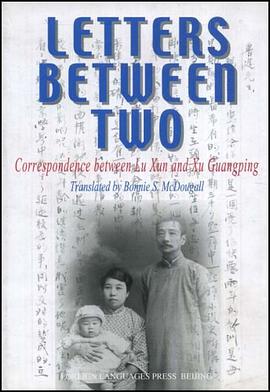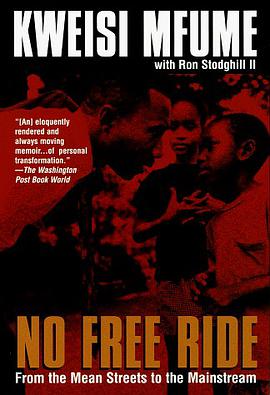
<div>PREFACE</div>
<p> </p>
<div>This book is not about education. It is about an economic transformation</div>
<p> </p>
<div>that is being driven by an implacable technological revolution. It is not</div>
<p> </p>
<div>about saving schools, or improving schools, or reforming schools, or even</div>
<p> </p>
<div>reinventing schools--it's about removing altogether the increasingly</div>
<p> </p>
<div>costly barrier schooling poses to economic and social progress.</div>
<p> </p>
<div> This book is not written for educators or academicians. Rather, it speaks</div>
<p> </p>
<div>to the interests of businesspeople, entrepreneurs, investors, workers, politi-</div>
<p> </p>
<div>cal leaders, consumer advocates, scientists, engineers, parents, learners of</div>
<p> </p>
<div>all ages, and most especially taxpayers--the consumers who pay the bills for</div>
<p> </p>
<div>services and products that are supposed to nurture learning. And while my</div>
<p> </p>
<div>own knowledge and experience necessarily give this book a U.S. focus, the</div>
<p> </p>
<div>trends and issues it describes are global, affecting all other nations, perhaps</div>
<p> </p>
<div>in different ways, but with no less profound impact.</div>
<p> </p>
<div> While the actual writing of this book began in the spring of 1991, the</div>
<p> </p>
<div>work that went into its creation stretches back over more than twenty years.</div>
<p> </p>
<div>If there was a starting point for this effort, it probably was sometime during</div>
<p> </p>
<div>1968-69 when I was working as a high school physics teacher in my home-</div>
<p> </p>
<div>town of Mount Vernon, New York. My struggle during that year to serve the</div>
<p> </p>
<div>needs of young learners while in continual combat with the mind-killing</div>
<p> </p>
<div>mandates of a corrupt education bureaucracy galvanized my disdain for the</div>
<p> </p>
<div>academic establishment much as similar experiences did for other apostate<br />
<div> teachers and writers such as John Holt, Jonathan Kozol, and Pat C~</div>
<br />
<div> Unlike others who channeled their disaffection into calls for "r</div>
<br />
<div> by 1970 I was convinced that the education system could not be a</div>
<br />
<div> but needed to be entirely replaced by a new mechanism more att</div>
<br />
<div> the technology and social fabric of the modern world. This conclus</div>
<br />
<div> nurtured by many sources, but especially influential were the</div>
<br />
<div> B. F. Skinner, George Leonard, and Jay Forrester.</div>
<br />
<div> The work of Skinner and his disciples showed that the proc~</div>
<br />
<div> learning could be analyzed, understood, and organized to serve the</div>
<br />
<div> ua! learner's needs in a way that made boredom, frustration, hum</div>
<br />
<div> and failure unnecessary.</div>
<br />
<div> In his 1968 book, Education and Ecstasy, Leonard portrayed</div>
<br />
<div> of high-tech learning that bore no resemblance to traditional sct</div>
<br />
<div> But neither then nor since have Leonard or most other utopian "r</div>
<br />
<div> tors" of education understood the basic economic and political</div>
<br />
<div> needed to translate their dreams into reality.</div>
<br />
<div> In his 1960s work on industrial dynamics and urban dynamics,</div>
<br />
<div> as later work in the field of "system dynamics" he helped create, J</div>
<br />
<div> rester showed that even modestly complex social systems strongly</div>
<br />
<div> behave in ways he called "counterintuitive," that is, contrary to wh~</div>
<br />
<div> mon sense presumes is obvious. One result is that most attempts to</div>
<br />
<div>the behavior of social systems turn out to be either impotent or "co</div>
<br />
<div>productive," making worse what they aimed to make better. Thus</div>
<br />
<div>seen welfare programs that have shattered families and inflamed p</div>
<br />
<div>real estate subsidies that spawned financial collapse, post-Watergate</div>
<br />
<div>cal reforms that have made political corruption epidemic. And near</div>
<br />
<div>a century of American education reform has yielded an academic es~</div>
<br />
<div>ment as greedily entrenched as ever, but whose obsolescence and</div>
<br />
<div>irrelevancy have soared along with its skyrocketing cost.</div>
<br />
<div> Inspired by such ideas, I returned to Harvard in 1970 and spent th</div>
<br />
<div>three years in an intense and largely independent study of most of tl</div>
<br />
<div>questions that underlie this book: What is learning and how does it</div>
<br />
<div>What technologies can facilitate learning, and how do they work? Ho~</div>
<br />
<div>learning fit in with the overall processes of human economy and ec,</div>
<br />
<div>And most important, how do you transform or replace established h</div>
<br />
<div>institutions? Of the several Harvard and MIT faculty who contributed</div>
<br />
<div>exploration of these questions, I particularly benefited from the aid al</div>
<br />
<div>couragement of Wassily Leontief, Harvey Liebenstein, Jay Forrester.......</div>
</div>
具體描述
讀後感
評分
評分
評分
評分
用戶評價
相關圖書
本站所有內容均為互聯網搜索引擎提供的公開搜索信息,本站不存儲任何數據與內容,任何內容與數據均與本站無關,如有需要請聯繫相關搜索引擎包括但不限於百度,google,bing,sogou 等
© 2025 qciss.net All Rights Reserved. 小哈圖書下載中心 版权所有





















